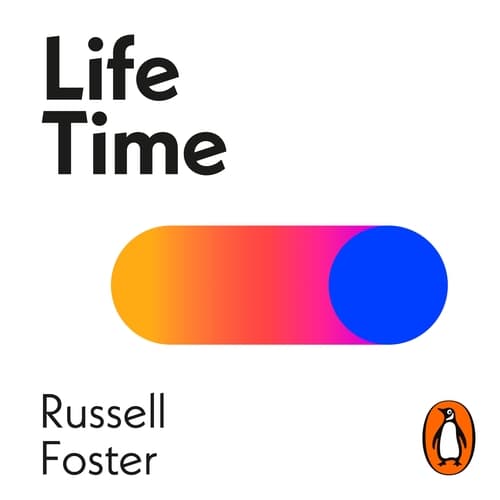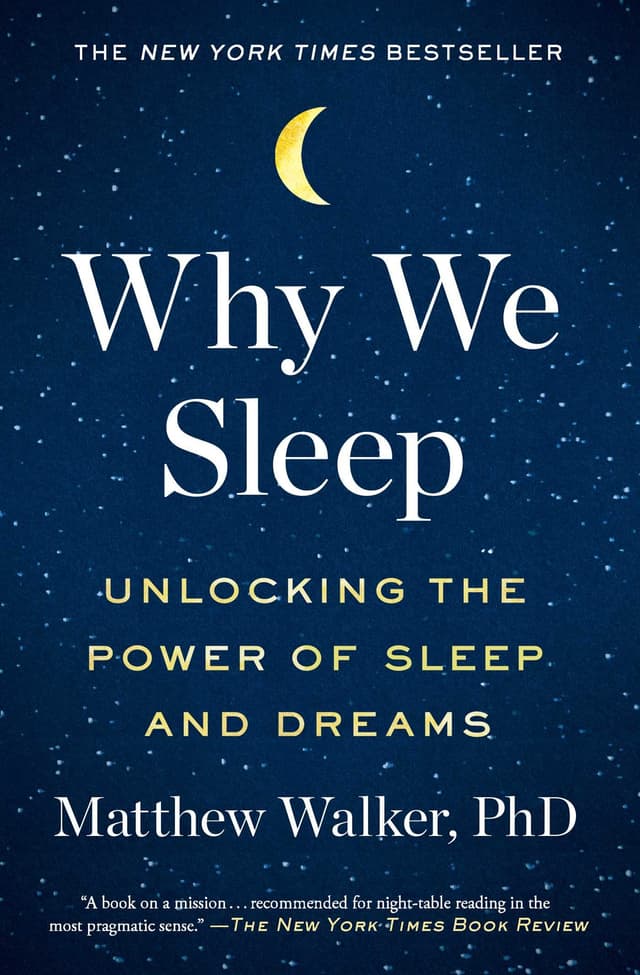Life Time by Russell Foster vs. Why We Sleep
Life Time by Russell Foster
A book about the circadian rhythm. Apparently, it's really misunderstood, even by your doctor. Read this book to understand your body better. It helped me improve my sleep.
Why We Sleep
By Mathew Walker - We sleep 1/3 of our life yet understand so little about it...

Reviews
Reviews
| Item | Votes | Upvote |
|---|---|---|
| No pros yet, would you like to add one? | ||
| Item | Votes | Upvote |
|---|---|---|
| No cons yet, would you like to add one? | ||
| Item | Votes | Upvote |
|---|---|---|
| No pros yet, would you like to add one? | ||
| Item | Votes | Upvote |
|---|---|---|
| No cons yet, would you like to add one? | ||
Frequently Asked Questions
'Why We Sleep' by Mathew Walker is highly regarded for its comprehensive exploration of the science behind sleep, making it a go-to resource for understanding sleep's critical role in our lives. On the other hand, 'Life Time' by Russell Foster delves into the circadian rhythm, which is a significant component of sleep and overall health. If your primary focus is a deep dive into sleep itself, 'Why We Sleep' might be the better choice. However, if you are interested in understanding how your body's internal clock affects sleep and overall health, 'Life Time' could be more beneficial.
'Why We Sleep' by Mathew Walker provides a plethora of scientific insights and practical tips on how to improve sleep habits based on extensive research. 'Life Time' by Russell Foster also offers valuable advice, particularly focusing on how to align your lifestyle with your circadian rhythm to improve sleep and overall health. Both books offer practical advice, but 'Why We Sleep' may provide more actionable steps specifically targeted at enhancing sleep quality.
Yes, there are key differences in the approach to sleep science between the two books. 'Why We Sleep' by Mathew Walker focuses extensively on the physiological and neurological aspects of sleep, providing a detailed scientific foundation. In contrast, 'Life Time' by Russell Foster emphasizes the circadian rhythm and its impact on sleep and overall health, offering a broader perspective on how timing affects our bodily functions. Both approaches are valuable, but they cater to slightly different interests within the realm of sleep science.
'Life Time' by Russell Foster is a comprehensive book that delves into the circadian rhythm, which is often misunderstood, even by medical professionals. The book aims to help readers understand their bodies better and provides insights on how to improve sleep patterns.
Russell Foster is a renowned neuroscientist and professor known for his research in circadian rhythms. He has authored several publications and books aimed at helping people understand the science behind sleep and biological clocks.
Currently, there are no user-generated pros and cons for 'Life Time' by Russell Foster.
'Why We Sleep' by Matthew Walker explores the vital importance of sleep, how it affects our health, and the consequences of sleep deprivation. The book delves into the science behind sleep, offering insights into why we need it and how it influences our cognitive functions, physical health, and overall well-being.
Matthew Walker is a professor of neuroscience and psychology at the University of California, Berkeley. He is a renowned sleep expert who has conducted extensive research on the impact of sleep on human health. Walker is the author of the book 'Why We Sleep,' which aims to educate the public on the importance of sleep.
'Why We Sleep' covers a range of topics related to sleep, including the stages of sleep, the impact of sleep on learning and memory, the health consequences of sleep deprivation, and the role of dreams. The book also offers practical advice on how to improve sleep quality and discusses the societal implications of widespread sleep neglect.
According to 'Why We Sleep,' sleep is crucial for maintaining cognitive functions, physical health, and emotional stability. It plays a vital role in memory consolidation, immune system functioning, and metabolic regulation. Lack of sleep can lead to a range of health issues, including increased risk of chronic diseases, impaired cognitive performance, and mood disorders.




















